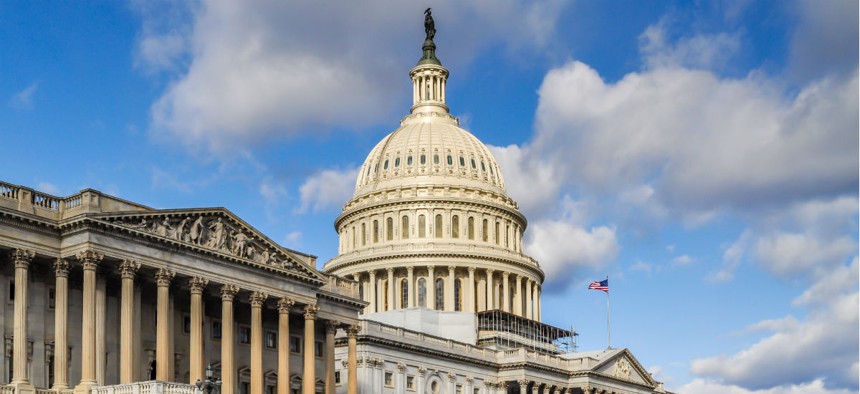House Approves Bill to Prevent Political Appointees From 'Burrowing In'
Legislation would require a two-year "cooling off" period before political appointees can take career positions.
The House advanced legislation by voice vote Tuesday that would curb use of a process where political appointees convert to career positions to remain in government.
The Political Appointee Burrowing Prevention Act (H.R. 1132), introduced by Reps. Ken Buck, R-Colo., and Ted Lieu, D-Calif., would institute a two-year “cooling off” period for political appointees before they can accept a position in the career civil service. The legislation also would codify existing Office of Personnel Management rules requiring the agency to approve any instance where a political appointee seeks to move into a career post.
Buck said on the floor that the phenomenon of “burrowing in” is a threat to the ideals of the non-partisan and merit-based federal civil service.
“Our federal civil service’s hiring process is supposed to be a competitive, merit-based system, where the best and brightest are considered based on their ability to do the job, not their political affiliation,” he said. “Political appointees are supposed to serve the president’s agenda for a temporary period of time, and part of their duty is to know when to step down from their position of power. This bill ensures that agencies hire career civil servants that are the most qualified, not the most politically connected.”
Rep. Gerry Connolly, D-Va., said that although he supports moving the bill forward, he hopes it can be amended in the Senate.
“This would make it very difficult for agencies to hire political appointees into career positions in the federal government,” he said. “And it would add significant hurdles to agencies seeking to hire an applicant who separated from their political appointment within the last five years, requiring them to certify that it is necessary for an agency to meet its mission. But several controls are already in place to ensure the process used to hire people is fair, open and based on merit.”
The bill was approved by the House Oversight and Government Reform Committee last November. Although political-to-career conversions are relatively rare—the Government Accountability Office documented only 99 conversion requests over a recent six year period, of which OPM approved 78—they tend to raise hackles in high-profile instances.
In January, Sen. Ron Johnson, R-Wis., chairman of the Senate Homeland Security and Governmental Affairs Committee, objected to the “burrowing in” of Leandra English at the Consumer Financial Protection Bureau.
English became a flashpoint earlier this year, after departing CFPB Director Richard Cordray named her to his post on an acting basis, just before President Trump appointed Office of Management and Budget Director Mick Mulvaney to the same job. That prompted a court battle over control of the agency, although the White House ultimately prevailed.
Johnson claimed that documents from OPM suggest the agency “hastily approved Ms. English’s conversion . . . based on information that included errors, potential conflicts of interest and insufficient independent verification.”
Supporters of the legislation also cited codification of OPM rules to serve as a deterrent against agencies circumventing the approval process. But between 2010 and early 2016, there were only seven unauthorized conversions of political appointees. In all cases, OPM retroactively denied those actions.








